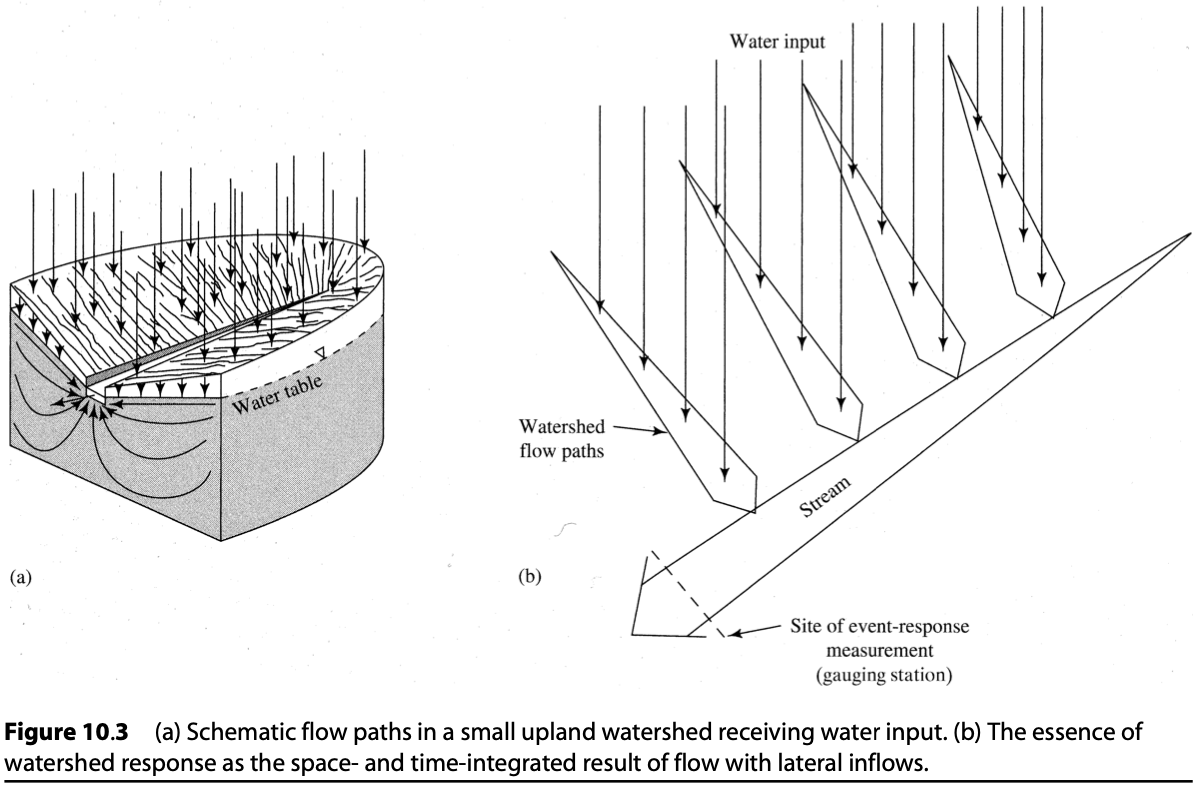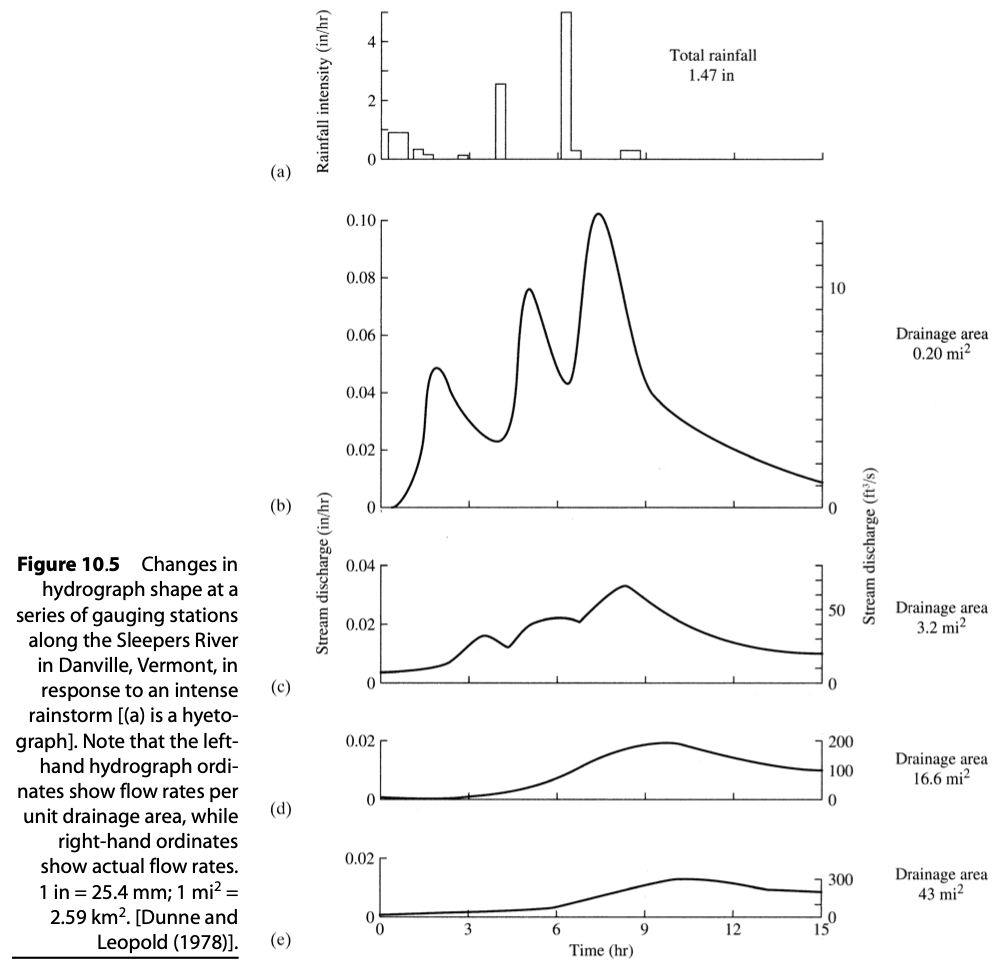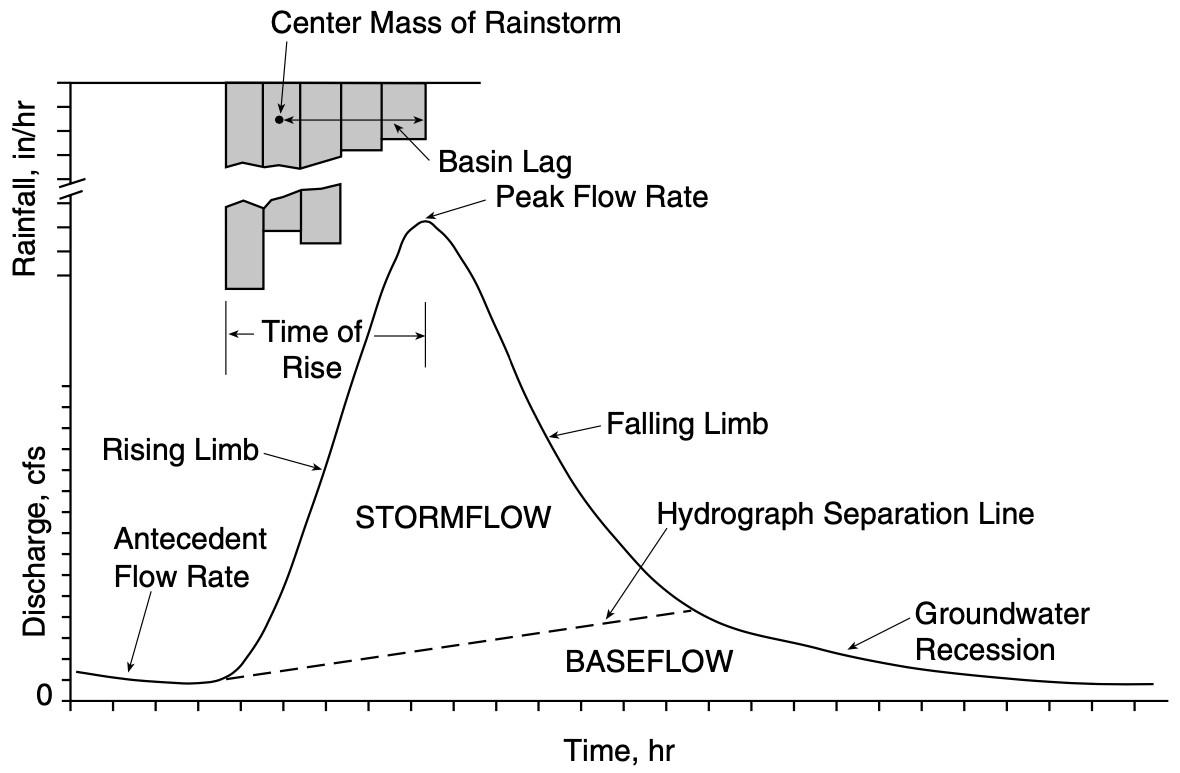Streamflow - lecture
Sources
Sources used:
(Dingman, 2015)
(Ward and Trimble, 2003)
Watershed - אגן היקוות
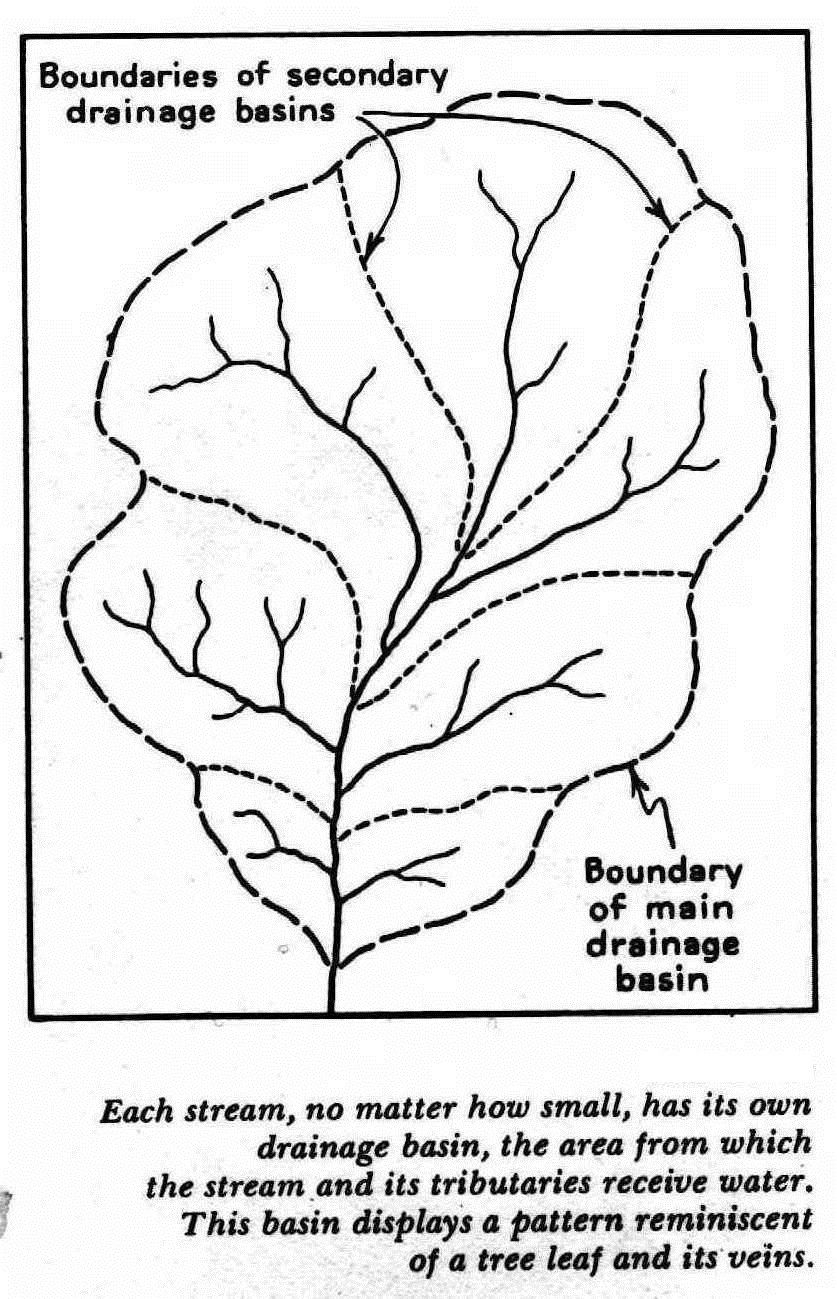
Watershed response:
- The volume of water appearing in the apparent response hydrograph for a given event is usually only a fraction (often a very small fraction) of the total input. The remainder of the water input ultimately leaves the watershed as: (1) evapotranspiration; (2) streamflow that occurs so long after the event that it cannot be associated with that event; or (3) ground-water outflow from the watershed.
- The water identified as the response to a given event may originate on only a fraction of the watershed; this fraction is called the contributing area.
- The extent of the contributing area may vary from event to event and during an event.
- At least some of the water identified as the response to a given event may be “old water” that entered the watershed in a previous event.
Base flow separation
Base flow
Base flow is the portion of streamflow that is presumed to have entered the watershed in previous events and to be derived from persistent, slowly varying sources. (Ground water is usually assumed to be the main, if not the only, such source.)
Event flow
Event flow (also called direct runoff, storm runoff, quick flow, or storm flow) is considered to be the direct response to a given water-input event.
Total flow
Total flow rate at any instant $q(t)$ is the sum of event-flow rate $q^*(t)$ and base-flow rate $q_{BF}$(t):
Attention!
Graphical flow separation techniques are heuristic and have no direct scientific basis.
Urbana, IL
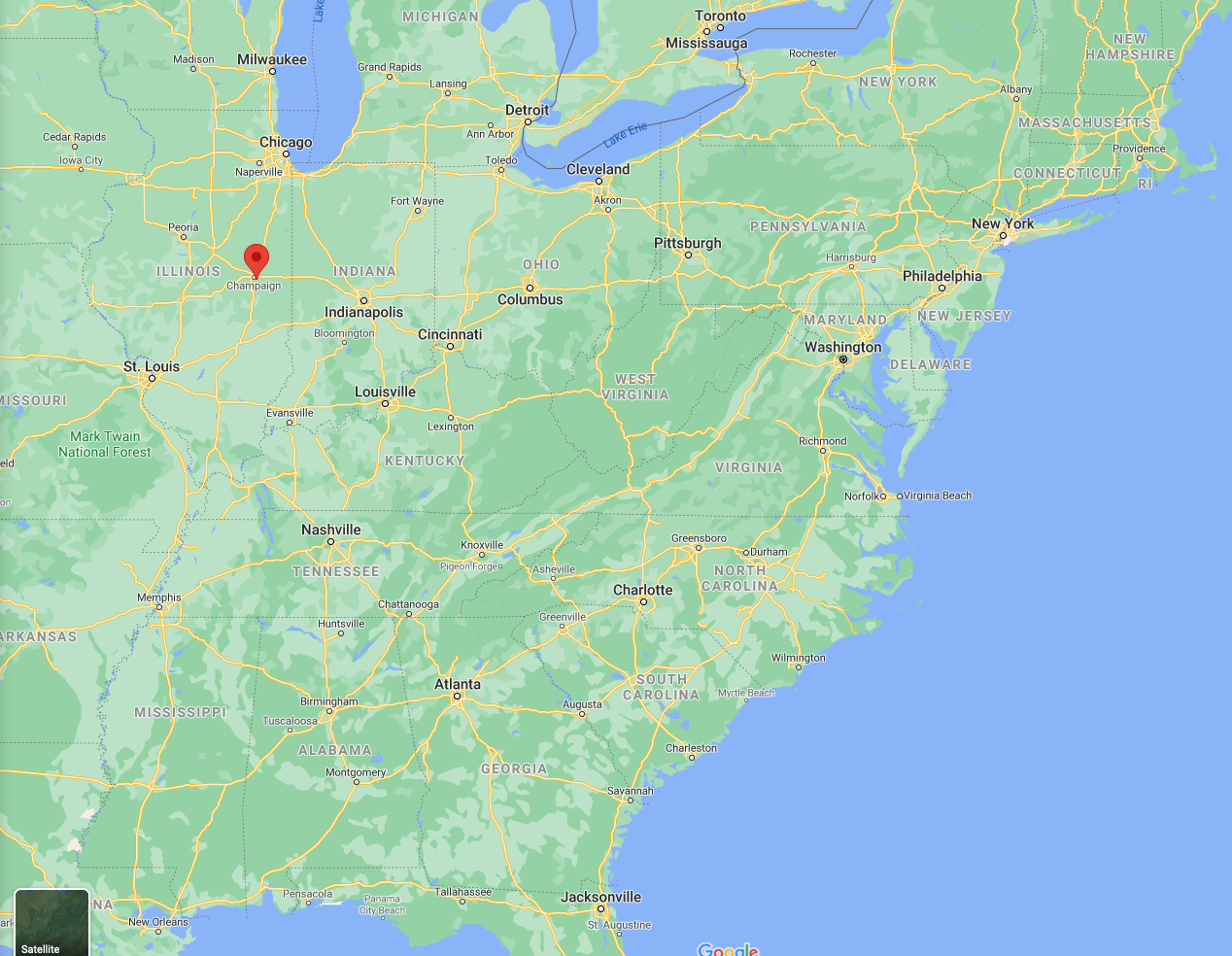
Hyetograph, Hydrograph
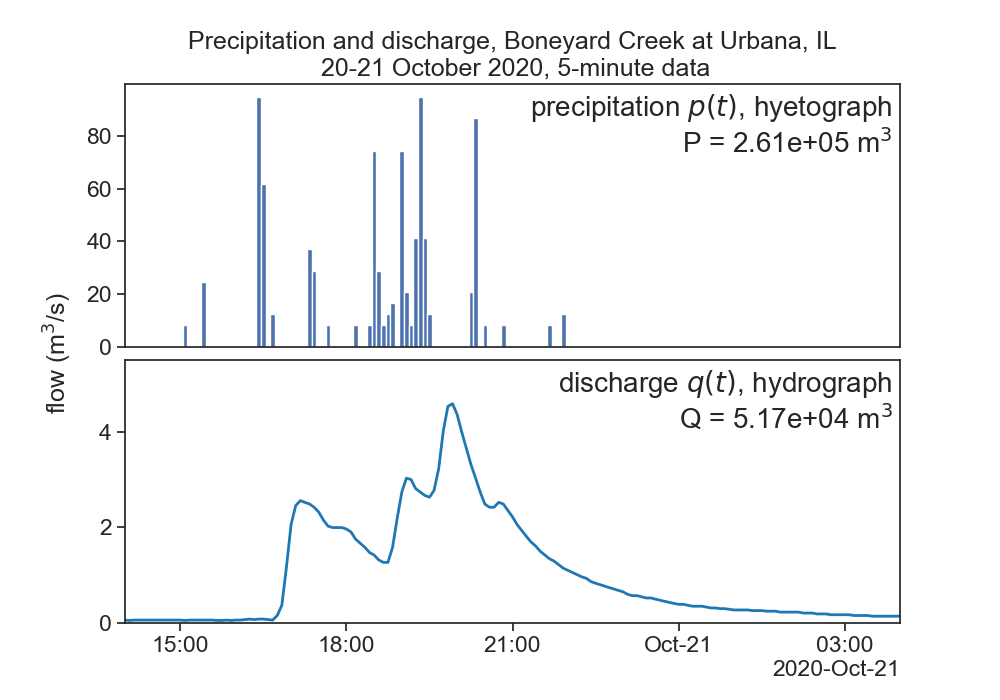
Notation
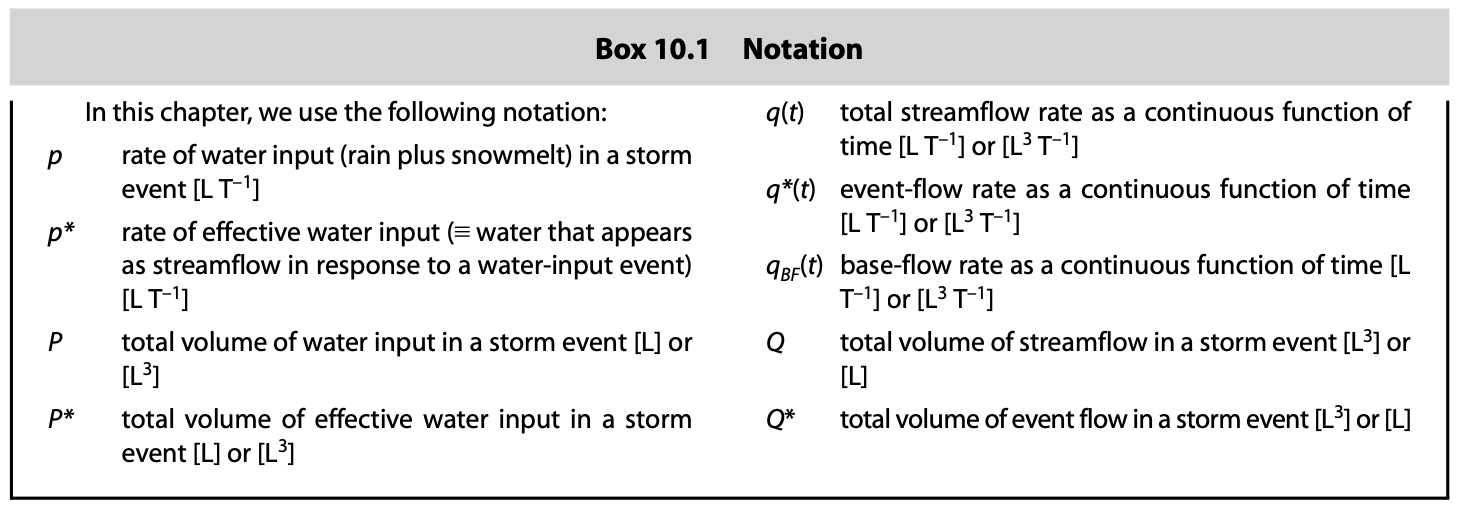
Base flow separation
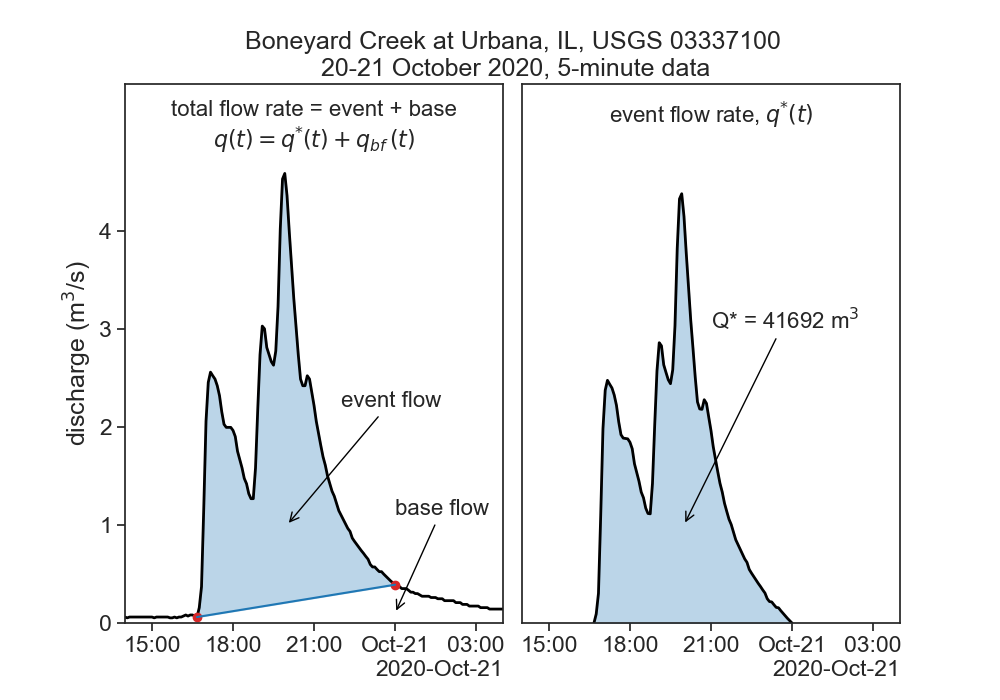
Effective precipitation = effective discharge
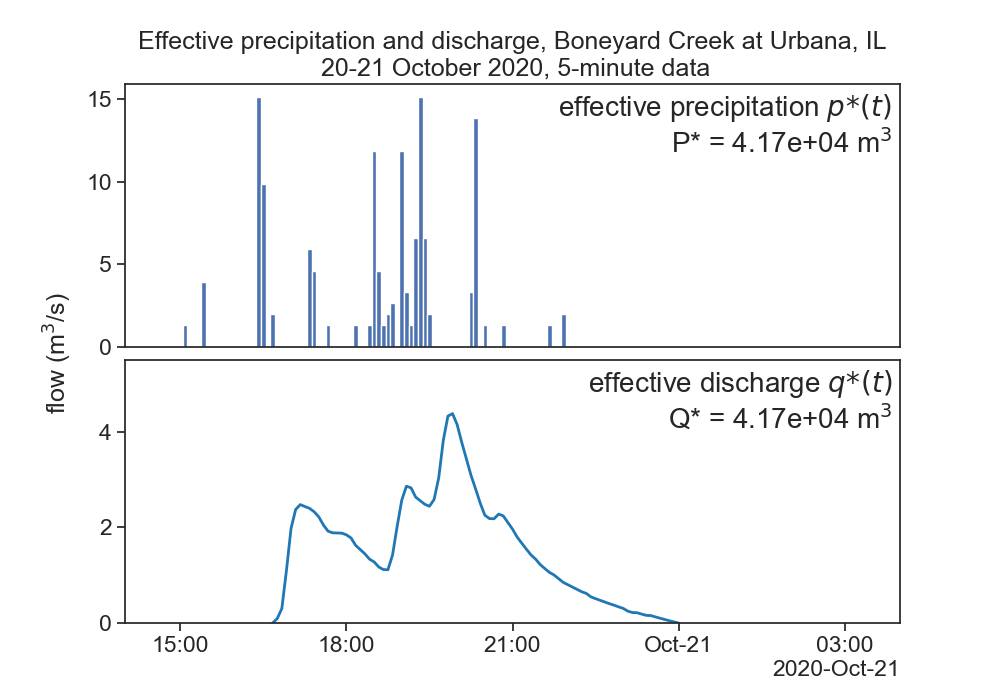
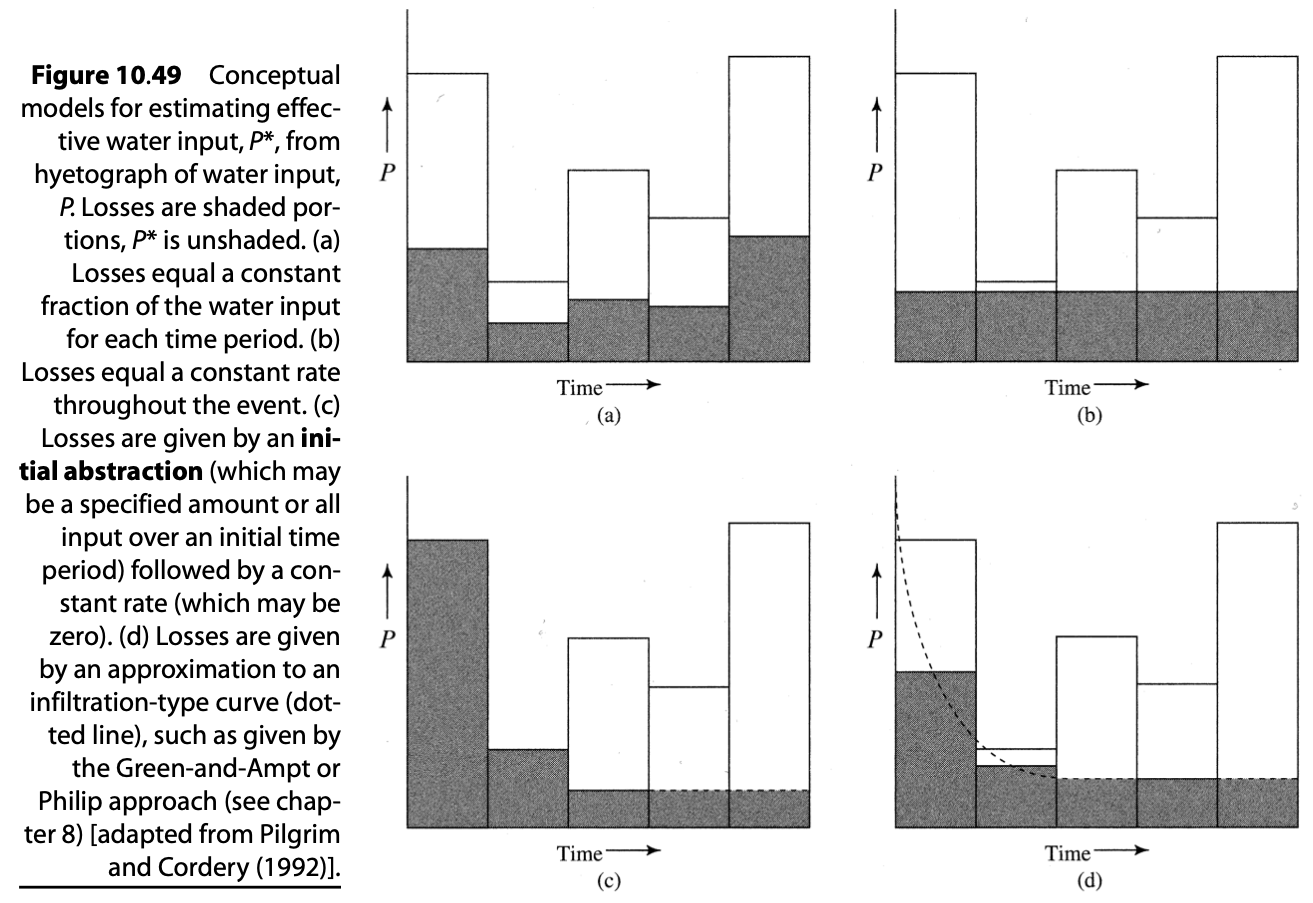
Time lags
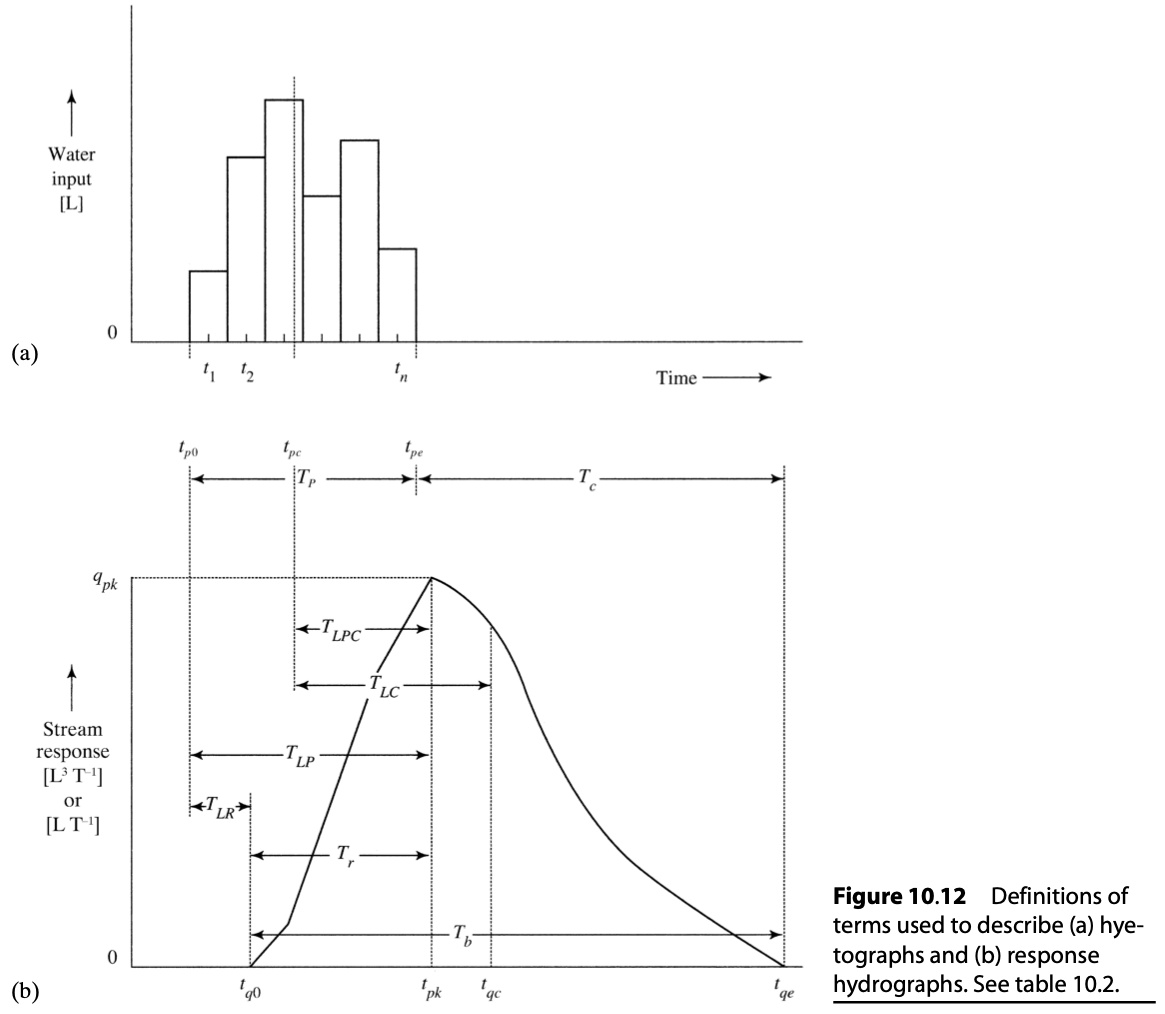
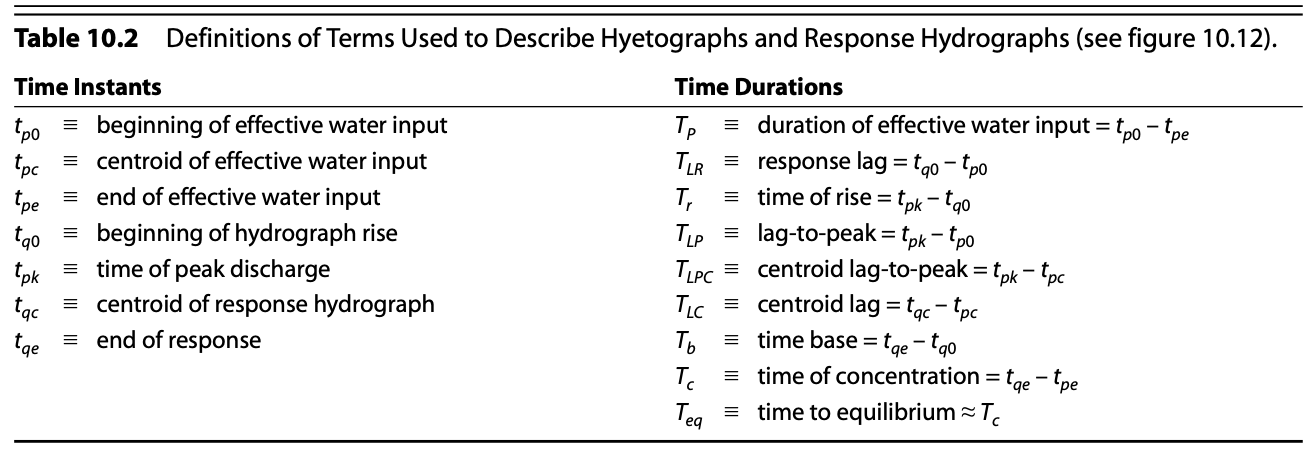
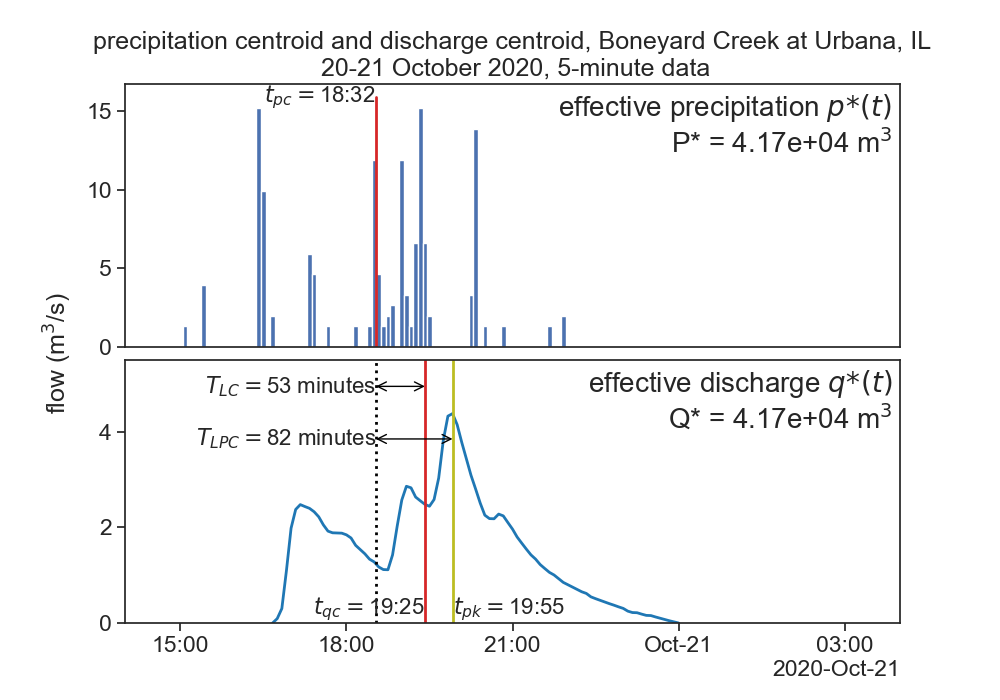
It is commonly assumed that $T_{LPC} \simeq 0.60 \cdot T_c$, where $T_c$ is the time of concentration, i.e., the time it takes water to travel from the hydraulically most distant part of the contributing area to the outlet.
The centroid is a weighted-average time, each time instant is multiplied by the amount of flow in that instant.
Time of precipitation centroid:
Time of streamflow centroid:
References
- Dingman, S.L., 2015. Physical Hydrology: Third Edition. Waveland Press.
- Ward, A.D., Trimble, S.W., 2003. Environmental Hydrology, Second Edition. CRC Press.
